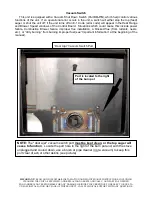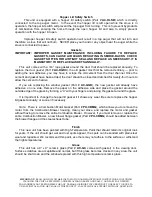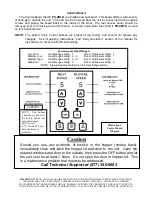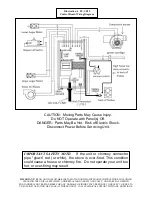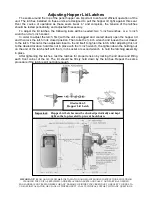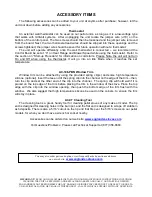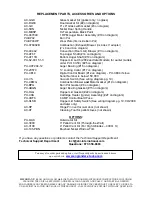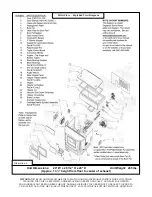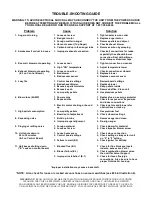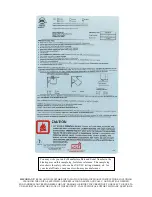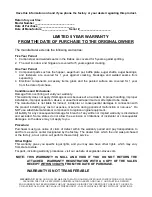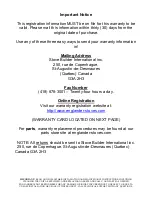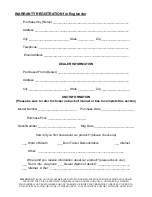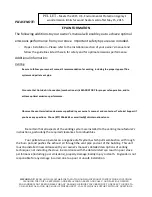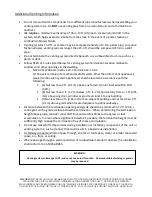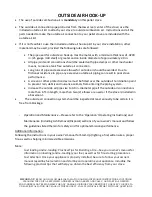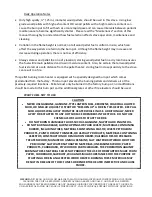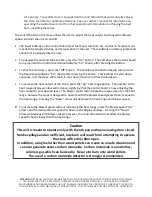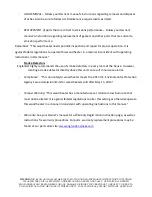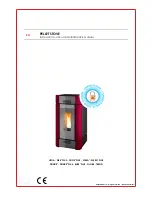
IMPORTANT!
READ AND FOLLOW
ALL
INSTALLATION AND MAINTENANCE INSTRUCTIONS, INCLUDING
CLEANING THE UNIT AS SPECIFIED, AND REPLACING GASKETS ANNUALLY, AND PARTS AS NEEDED.
ENGLANDER IS NOT RESPONSIBLE FOR ANY DAMAGE OR INJURY INCURRED DUE TO NEGLECT, OR DUE TO
UNSAFE INSTALLATION OR USAGE OF THIS PRODUCT. CALL TECHNICAL SUPPORT WITH ANY QUESTIONS.
Additional Venting Information
•
Do not mix and match components from different pipe manufacturers when assembling your
venting system (i.e. Do
NOT
use venting pipe from one manufacturer and a thimble from
another).
•
We
require
a minimum vertical rise of 36 in. (3 ft.) of pipe to create natural draft in the
system, which helps evacuate smoke from the stove in the event of a power failure or
combustion blower failure.
•
Venting systems 15.0 ft. or shorter may be composed entirely of 3.0 in. pellet pipe; to reduce
frictional losses, venting systems longer than 15.0 ft. should be composed of 4.0 in. pellet
pipe.
•
Do not terminate the venting system directly beneath any combustible structure such as a
porch or deck.
•
Follow NFPA 211 rules listed below for venting system termination location relative to
windows and other openings in the dwelling.
o
NFPA 211 (2006 ed.) Section 10.4 Termination: 10.4.5
(1) The exit terminal of a mechanical draft system other than direct vent appliances
(sealed combustion system appliances) shall be located in accordance with the
following:
(a) Not less than 3 ft. (.91 m) above any forced air inlet located within 10 ft.
(3.0m).
(b) Not less than 4 ft. (1.2 m) below, 4 ft. (1.2 m) horizontally from or 1 ft. (305
mm) above any door, window or gravity air inlet into any building.
(c) Not less than 2 ft. (0.61 m) from an adjacent building and not less than 7 ft.
(2.1 m) above grade when located adjacent to public walkways.
•
Distance between the termination opening and grade should be a minimum of 2 ft. (24 in.)
contingent on the grade surface below the termination. When determining the termination
height above grade, consider snow drift lines and combustibles such as grass or leaf
accumulation. In areas where significant snowfall is possible, the termination height must be
sufficiently high to keep the termination free of snow accumulation.
•
Do not use makeshift compromises during installation or install any component of the unit or
venting system in such a manner that could result in a hazardous installation.
•
A chimney connector shall not pass through an attic or roof space, closet or similar concealed
space, or a floor, or ceiling.
•
Where passage through a wall or partition of combustible material is desired, the installation
shall conform to CAN/CSA-B365.
WARNING:
Venting system surfaces get HOT, and can cause burns if touched. Noncombustible shielding or guards
may be required.

